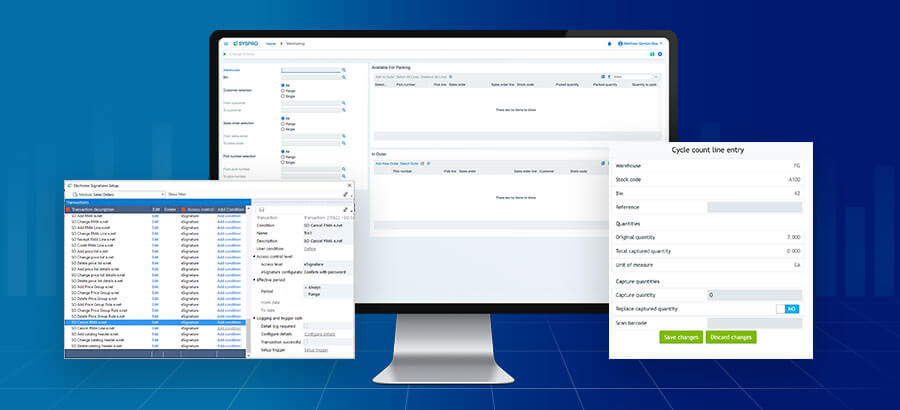Implementing an ERP project can be compared to climbing to the top of Mount Everest, you need to approach it one step at a time before reaching the peak. Also look at it this way: You wouldn’t climb Mount Everest without an experienced guide.
An ERP system can help a business dramatically improve its processes and remain competitive, but it’s a journey that must be taken with important considerations. From layering the organizational groundwork to planning for the long haul, getting the most out of your ERP means investing your time to ensure the business transformation is successful. When embarking on your ERP journey it’s vital to select a vendor that can cater to your industry-specific challenges and that will partner with you as a trusted advisor at every step of the way.
There are 6 phases that make up any ERP implementation project: Approach, Discovery, Design, Implementation, Monitoring, and Evolution.
Approach: In this phase you will need to start developing the project plan, document the internal and external participants, resources required and understand the objectives.
Discovery: The discovery phase is an extensive research process that gathers information on an organizations current systems and processes to detail the problem landscape before any ERP solutions are decided upon.
Design: This phase of the implementation process takes the results of the discovery and planning phases to develop a detailed functional design of how the ERP will enable new workflows and processes from an end-user’s perspective. This is where you decide if the ERP will be customized and if there will be a need for any third-party integration.
Implementation: This is not necessarily the go-live date. This means your ERP application is developed, ready and will need to go through testing. At this point you should also start educating stakeholders within your business on how it will be used and how it will impact their workflows.
Monitor: After go-live you will need to continuously test and monitor your ERP system to ensure its fit for purpose and if any adjustments that will need to be made.
Evolution: ERP implementation is an ongoing project that you will need to keep working on. The evolution is based on the ‘Kaizen’ method, which is about continuous incremental improvement. For example, reports and analytics in your ERP system can help you identify areas where improvements can be made. This will ensure you keep reaping the rewards from your ERP system and avoid a situation where you discover your business has changed but your ERP system has not.
To assist you on your ERP implementation journey here are key questions to ask as you build your roadmap:
1. What my business case?
A business case captures the reasoning for initiating a project or task. It gives you the opportunity to identify your unique organizational pain points and challenges and explore which software systems and features are necessary to add value to your business. In a 2020 SYSPRO survey it showed that 60% of manufacturing and distribution businesses were impacted by supply chain disruptions during the pandemic. Examples are heavily integrated supply chains that relied on foreign raw materials, manufacturers needed to explore initiatives like ERP and e-commerce integration to deliver directly to customers. An ERP implementation with a clear business case ensures your company realizes measurable business benefits from its ERP software.
A tailored ERP business case enables an organization to evaluate its specific benefits, costs and risks. It also provides the ERP project team with a clear direction of priorities and responsibilities. For example, ERP failures can also be caused by too much ERP customization. However, with a solid business case, the project team will be better equipped to decide where customization makes sense.
2. Where do I sit on the DX scale?
Understanding your company’s digital transformation journey is the first step in driving value through ERP. Without understanding your current state and putting a plan in place, you risk making high-cost, low-value decisions and investing in initiatives that your existing technology can’t support. For example, evaluate if you are a digital explorer? Where your business has identified the need to develop a digital strategy, but execution is on project basis. Or are you a digital disrupter? Where your enterprise is aggressively disruptive in the use of new technologies. Understanding your companies’ current level of digital maturity provides you with a roadmap to reach digital goals, plan for growth and measure success.
3. Who is my ERP dream team?
The right team is essential for the success of an ERP project. Essentially, your team structure will consist of two layers – an executive team and a project management team. You want people with the right skill and understanding for the project, and those people might not always be visible in your organization. The team will most likely include the executive sponsor who will provide high-level guidance for the project, a project manager who is responsible for the implementation process, the functional and technical teams who will execute tasks and your software vendor or partners.
4. What does my change management strategy include?
If you want to ensure your ERP system which will impact your entire organization and its processes, is embraced, adopted, and sustained, you need to prioritize change management. Changes across an organization can result in disconnected employees and poor productivity if people struggle with new systems they don’t understand. That is why it’s vital to have a robust change management plan that incorporates training, streamlined communication, and clear processes and procedures.
It’s particularly important to gain buy-in from leadership and employees within your organization. With this in mind, you must consider the impact these process changes will have on your end users. How might it change their day-to-day tasks and responsibilities? Resources may be seconded to the ERP project, which means resources will need to be shuffled to compensate.
5. How do I define success?
Prior to starting the implementation of an ERP system, you need to establish what defines a successful project for your organization. To figure that out you will need to establish key areas of improvement and attach milestones and metrics to those areas that can be measured along the way. Keep in mind that some metrics are easier to measure than others. For example, tasks such as better time management and staff costs are metrics that can be quantified, increased visibility across the organization is a more abstract metric. Regardless of what you decide to measure, define those metrics early on in the project and communicate them to your team.
As with any major initiative, a carefully designed implementation plan is critical. Dividing your implementation into phases, each with clear objectives, can maximize your success. In contrast, diving into an ERP implementation without first establishing clear project direction, scope and structure increases the likelihood of encountering significant problems later.






